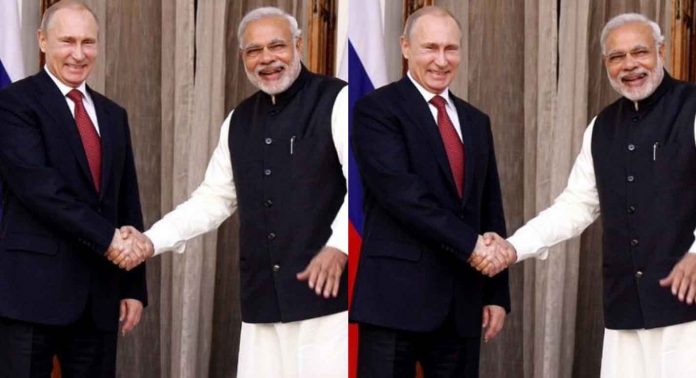Despite calls from Western countries for India to gradually distance itself from its primary arms supplier. Russia, over its February 2022 invasion of Ukraine, the FTA talks represent an increase in commercial links between the two countries.
In the most recent fiscal year, India’s imports from Russia more than doubled to $46.33 billion. This is driven primarily by oil purchases.
“We pay special attention to the issues of mutual access of production to the markets of our countries,”. Russian Deputy Prime Minister and Trade Minister Denis Manturov said at a New Delhi event.
“We anticipate stepping up negotiations on a free trade agreement with India with the Eurasian Economic Commission.”
S. Jaishankar, India’s foreign minister, said the ongoing COVID outbreak had hampered talks on a free trade agreement (FTA). Between India and the Russian-led Eurasian Economic Union. He said, “We do believe it will make a real difference to our trade relationship,” and he hoped “our colleagues will pick up on this.”
As Manturov put it, “I am sure that this will create opportunities for Indian companies to increase their supplies to Russia”. Because of the high need for chemicals, pharmaceutical items, and road construction materials in Russia.
New Delhi is now in FTA talks with the United Kingdom, the European Union, and the Gulf Cooperation Council, so the timing of this statement couldn’t be better.
Since Western sanctions imposed over Russia’s military action in Ukraine have hampered its ability to keep core industries operating. Reuters reported in November that Russia was potentially seeking to import more than 500 products from India for key sectors including cars, aircraft, and trains.
According to Manturov, Russia is considering making “national currencies and currencies of friendly countries” more widely accepted. The use of the Indian rupee in trade with Russia has been a priority for India.
Pro-Western Ukrainians have called Russia’s campaign in Ukraine an unprovoked war of conquest. While the Russian government has called it a “special military operation” against security concerns.
Rather than directly condemning the Russian intervention, New Delhi has instead advocated for talks to end the situation. As the conflict has continued, trade between Russia and India has increased.
Russia, India’s longtime No. 1 provider of military gear, replaced Iraq as the country’s No. 1 source of crude oil last month. India had not purchased much Russian oil before the conflict in February of last year.
A key aspect of Russia’s plan to cushion the blow of Western sanctions is to increase trade with Asian superpowers like China. Improving ties with India is a key aspect of this plan.
By proposing discounted oil supplies to Pakistan and agreeing to repay payments for developing a nuclear power project. In Bangladesh in yuan, Moscow is aiming to increase or sustain relations with other South Asian countries.
According to Jaishankar, New Delhi is attempting to resolve payment, certification, and logistics obstacles. So that Indian businesses can profit from Russian technology.
